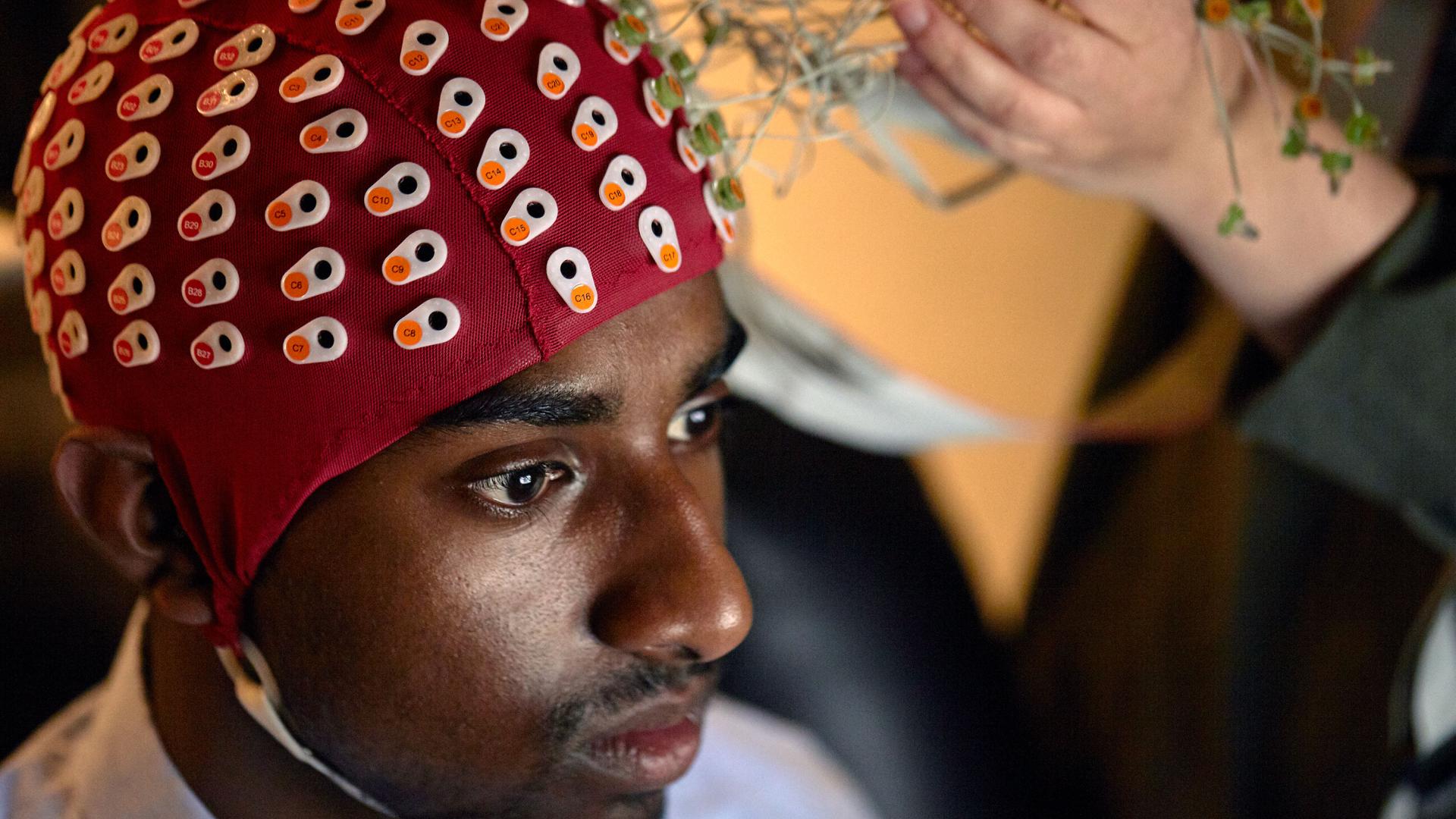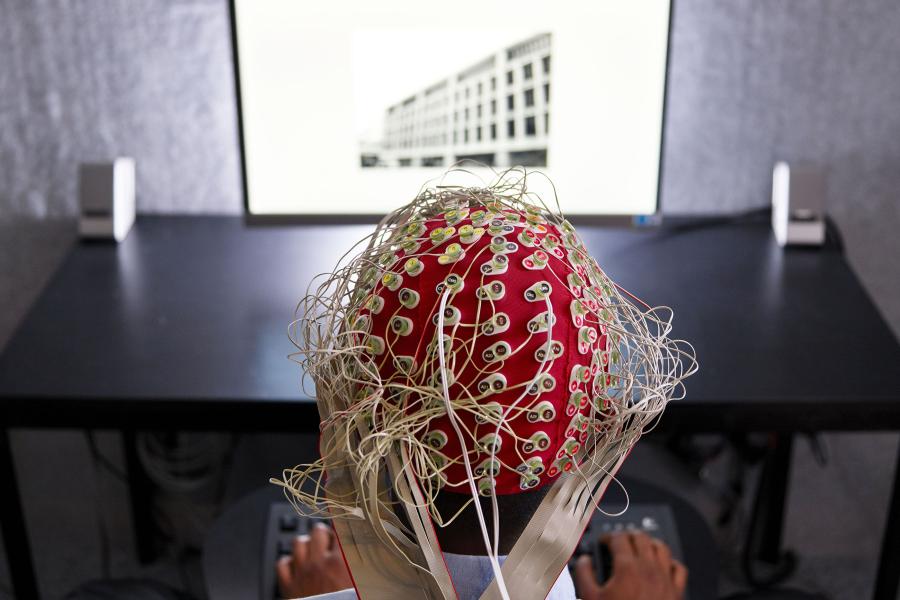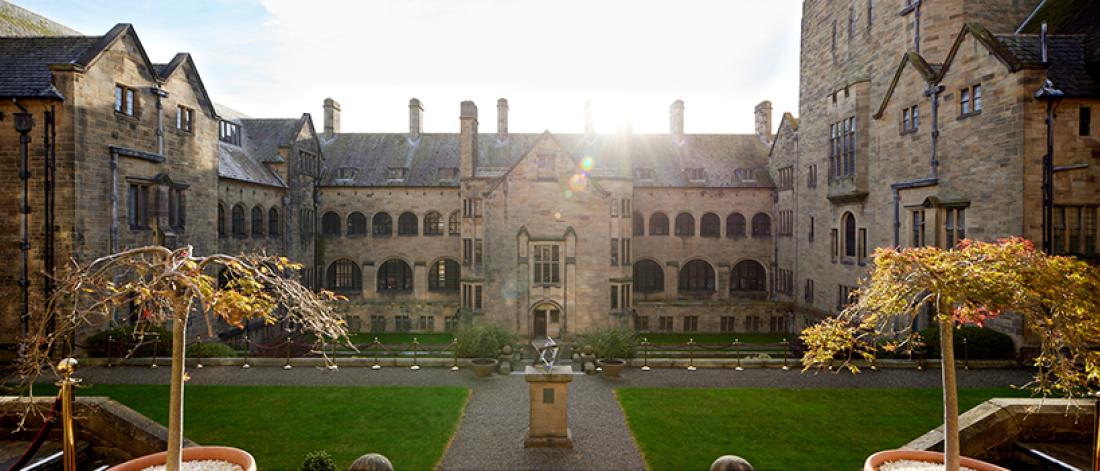About This Course
BSc Neuropsychology, taught by neurologists, neuropsychologists and neuroscientists, gives medical students a foundation of contemporary knowledge and research skills for exploring the psychobiology of the mind. The course has close links with the School of Medical Sciences with students sharing facilities and having exposure to practising clinicians throughout the course. BSc (Hons) Neuropsychology is an intercalated course aimed at medical students who wish to study the biological basis of the human mind in health and disease. This one-year course reviews the theoretical and underpinnings of neuropsychology, and provides a foundation in clinical and basic neuroscience central for understanding the biological bases of neuropsychological and psychiatric conditions.
Psychology at Bangor University was founded in 1963 and is one of the UK's oldest psychology departments. We regularly rank among the top 10 in the National Student Survey for overall student satisfaction and with over 1,100 students and 100 staff we're also one of the largest departments in the UK. Not only are we highly ranked for our teaching but we also have a global reputation for the quality of our research. In the most recent Research Excellence Framework, we ranked in the top 20 in the UK with 89% of our research considered either 'Internationally Excellent' or 'World leading'. This research feeds directly into our teaching ensuring a fresh, vibrant learning experience and a large and varied range of modules studied with academics who have an international reputation in their specialist areas.
Psychology at Bangor has a cosmopolitan feel and a global outlook that attracts staff and students from all over the world to work and study with us. A key aspect of our success is our focus on both the academic and pastoral sides of the student experience and this effort is led by academics in the teaching team who provide high levels of support to our students. All of this combines to provide you with what we believe is a uniquely supportive, exciting and rewarding environment in which to study Neuropsychology.
Why Choose Bangor University for this course?
- Specialist research labs including an MRI scanner, TMS, ERP, EEG and a Brain Anatomy lab.
- Expertise in neuroscience and an exciting array of neuropsychology dissertations e.g. how brains process information from prosthetic limbs or how brain activity differs with different languages.
Course Content
The one-year programme comprises compulsory taught modules, optional modules and your own, independent research project and dissertation. In addition to taught modules, you will have opportunities for practical experience and research, working alongside the School’s specialists in neuropsychology, functional magnetic resonance imaging, event-related brain potentials, magnetic brain stimulation and neural modelling.
What will you study on this course?
You will cover areas such as Introduction to Neuroimaging, Biological Bases of Psychological Disorders, Behavioural Neurology, Cognitive Neuroscience and Clinical Neuropsychology. In addition to taught modules, you will have opportunities for practical experience and research, working alongside the School’s specialists in neuropsychology, functional magnetic resonance imaging, event-related brain potentials, magnetic brain stimulation and neural modelling.
*N.B. This degree scheme will not qualify you for the Graduate Basis for Chartered Membership of the British Psychological Society.
Modules for the current academic year
Module listings are for guide purposes only and are subject to change. Find out what our students are currently studying on the Neuropsychology (Intercalated) BSc (Hons) Modules page.
Course content is for guidance purposes only and may be subject to change.
Facilities
General University Facilities
Library and Archive Services
Our four libraries provide a range of attractive study environments including collaborative work areas, meeting rooms and silent study spaces.
We have an extensive collection of books and journals and many of the journals are available online in full-text format.
We house one of the largest university-based archives not only in Wales, but also the UK. Allied to the Archives is the Special Collections of rare printed books.
Learning Resources
There is a range of learning resources available, supported by experienced staff, to help you in your studies.
The University’s IT Services provides computing, media and reprographics facilities and services including:
- Over 1,150 computers for students, with some PC rooms open 24 hours a day
- Blackboard, a commercial Virtual Learning Environment, that makes learning materials available on-line.
Course Costs
General University Costs
Home (UK) students
- The cost of a full-time undergraduate course is £9,250 per year (2025/26).
- The fee for all integrated study abroad years is £1,385 (2025/26).
- The fee for an integrated year in industry as part of a sandwich programme is £1,850 (2025/26).
More information on fees and finance for Home (UK) students.
International (including EU) students
Additional Costs
There are also some common additional costs that are likely to arise for students on all courses, for example:
- If you choose to study abroad or take the International Experience Year as part of your course.
- If you attend your Graduation Ceremony, there will be a cost for gown hire (£25-£75) and cost for additional guest tickets (c.£12 each).
Course-specific additional costs
Depending on the course you are studying, there may be additional course-specific costs that you will be required to meet. These fall into three categories:
- Mandatory Costs: these are related to a particular core or compulsory module that you’ll be required to complete to achieve your qualification e.g. compulsory field trips, uniforms for students on placement, DBS Check.
- Necessarily Incurred Costs: these may not be experienced by all students, and will vary depending on the course e.g. professional body membership, travel to placements, specialist software, personal safety equipment.
- Optional Costs: these depend on your choice of modules or activity and they are shown to give you an indication of the optional costs that may arise to make sure your choice is as informed as possible. These can include graduation events for your course, optional field trips, Welcome Week trips.
Entry Requirements
Your first step is to consult your current Medical School to obtain permission to intercalate.
If you would like to discuss the course in more detail, please contact: Martyn Bracewell
Please note: the intercalated degree scheme, including Joint Honours, will not qualify you for the Graduate Basis for Chartered Membership of the British Psychological Society.
How to apply
To apply to this intercalated degree course please download and complete this application form and return to admissions@bangor.ac.uk
Careers
These courses enable medical students to gain a scientific perspective of neuropsychology which in addition to the enhanced career opportunities typically available to medical students who intercalate, provides a strong foundation for postgraduate study and clinical research positions within the NHS.




